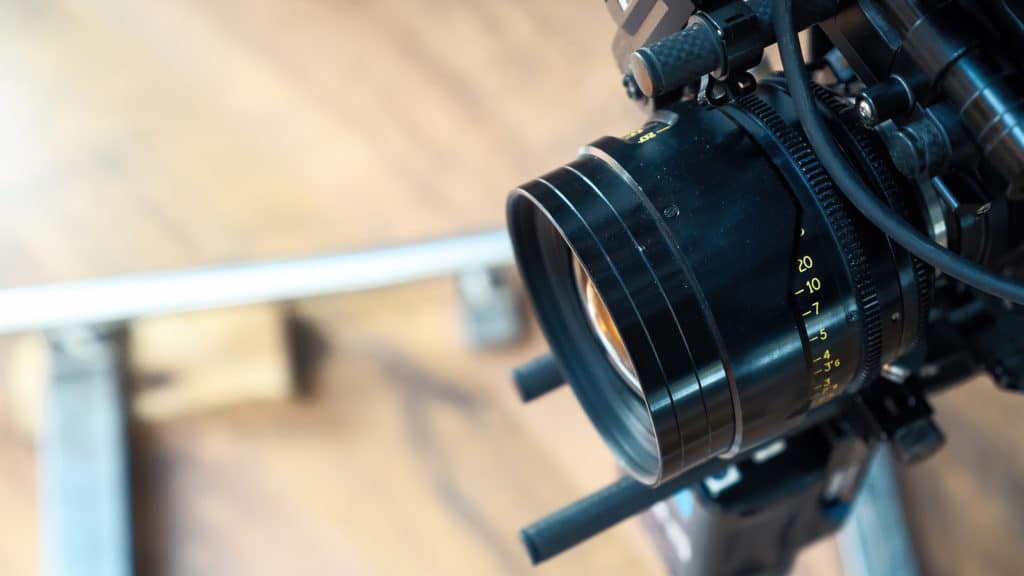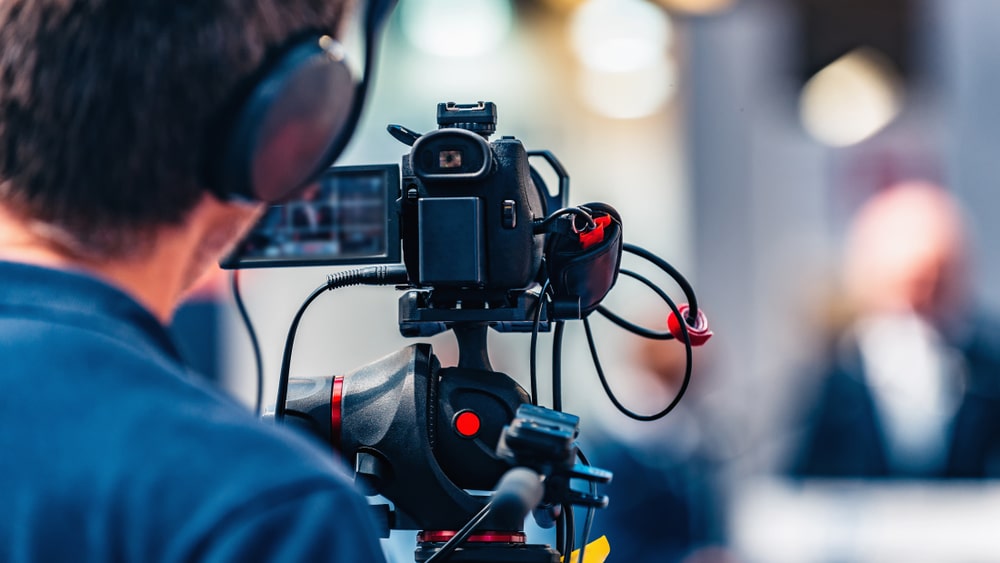Legal video depositions best practices: From lighting setup to audio clarity
The Significance of Legal Video Depositions in Modern Legal Providers: What You Need to Know
Lawful video depositions have become essential in today's lawful landscape. They give a multidimensional sight of witness statements that conventional transcripts merely can not match. By recording both verbal and non-verbal interaction, these depositions improve the general understanding of a witness's trustworthiness. Nevertheless, the effectiveness of video clip depositions rests on various factors, consisting of compliance with lawful criteria and finest practices (legal video depositions). Exploring these components exposes their real relevance in modern lawful services
What Are Legal Video Depositions?
Lawful video depositions work as an essential device in the litigation process. They entail recording witness testimonies in a video layout, recording both non-verbal and verbal interaction. This approach allows attorneys to document the temperament, expressions, and reactions of witnesses, offering a richer context for the testament. Typically conducted in a controlled environment, these depositions are led by lawyers who ask inquiries while a court press reporter records the discussion. The resulting video can be critical for trial prep work, as it allows attorneys to analyze the integrity of witnesses and refine their methods. Furthermore, legal video clip depositions can be used in numerous legal contexts, ranging from civil disputes to criminal instances. The visual and auditory aspects of video clip depositions improve the presentation of evidence, making it a crucial part in the modern-day lawful landscape. Generally, they add significantly to the effectiveness and efficiency of lawful proceedings.

Advantages of Video Clip Depositions Over Conventional Methods
Video depositions use numerous benefits contrasted to typical techniques of taking witness testaments. One substantial advantage is the ability to record both audio and aesthetic elements, offering an extra complete document of the witness's statements. This dual layout enhances quality and enables attorneys to reference particular nuances during test preparation. Furthermore, video depositions promote remote engagement, making it simpler for witnesses who might be inaccessible for in-person looks as a result of geographical restraints or health and wellness issues.Moreover, video depositions can quicken the total deposition process, reducing the time and costs related to traveling and logistics. They likewise improve access, as videotaped depositions can be quickly shared amongst lawful teams and referenced at any kind of time. This convenience adds to far better case monitoring and preparation. Generally, video clip depositions stand for a modern-day, effective strategy to gathering witness statements, lining up with the progressing requirements of the legal profession.
The Duty of Body Language and Tone in Testimonies

In legal video depositions, body language and tone play crucial duties in conveying a witness's reliability and credibility. Nonverbal cues can give understandings right into a witness's emotional state, affecting how their testament is perceived. Comprehending the effect of these aspects is necessary for jurors and attorneys alike when examining the dependability of a statement.
Nonverbal Interaction Insights
While verbal communication is usually highlighted in legal statements, nonverbal signs such as body movement and tone play a necessary function in sharing reputation and emotion. Viewers of depositions may note that a witness's pose, gestures, and faces can greatly influence perceptions of reliability. Regular eye contact might signify confidence, while avoiding stare could recommend dishonesty or pain. In a similar way, the tone of voice-- its pitch, pace, and volume-- can impart feelings of sincerity or uncertainty. Attorneys have to be in harmony with these nonverbal signals, as they frequently provide important context that complements talked words. Understanding these subtleties can enhance the effectiveness of depositions and influence the outcome of lawful proceedings.
Emotional Tone Influence
The psychological tone conveyed throughout lawful testimonies substantially affects how a witness is viewed. Body language, singing inflections, and facial expressions play important duties fit the story of a testimony. A witness exhibiting confidence via steady eye get in touch with and a tranquil tone can instill a sense of integrity and interaction. Conversely, signs of stress and anxiety, such as fidgeting or an unstable voice, might result in uncertainty concerning their account. The subtleties of emotional expression can affect the analysis of truths, making it important for lawful experts to identify these hints. In video clip depositions, the auditory and visual components integrate, highlighting the relevance of psychological tone in communicating sincerity and truthfulness within the legal procedure.
Integrity and Reliability
A crucial aspect in establishing integrity and dependability during testaments depends on the witness's body movement and intonation. Viewers commonly rely upon non-verbal signs-- such as eye call, pose, and gestures-- to evaluate a witness's sincerity. A witness who maintains eye call and displays open body language might be perceived as more honest and reputable than one that avoids eye call or shows up closed off. Additionally, tone of voice plays an important function; a consistent, tranquil tone can strengthen the reputation of the testimony, while fluctuations in pitch or volume might increase uncertainties. Ultimately, the mix of body language and vocal tone substantially affects just how a witness's declarations are received and translated in a legal context.
Ideal Practices for Performing Video Clip Depositions
Performing video clip check depositions requires careful preparation and execution to assure a clear and efficient presentation of testimony. First, it is very important to choose a silent, well-lit area to minimize diversions and safe and secure optimum video quality. The equipment must be checked beforehand, consisting of cameras, microphones, and lighting, to avoid technical concerns throughout the deposition.Next, events included should review the format and treatments ahead of time, seeing to it that everybody understands their duties. The deponent should be informed on the process, including just how to respond clearly and concisely.Additionally, preserving an expert disposition throughout the session is vital. This consists of avoiding from speaking over one an additional and confirming that all inquiries are directed suitably. Ultimately, it is critical to tape the deposition in a format that enables simple playback and evaluation, preserving the stability of the statement for future usage.
Lawful Considerations and Conformity Issues
Just how do lawful factors to consider and conformity issues affect the performance of video depositions? Attorneys need to navigate an intricate landscape of policies, guaranteeing that video depositions adhere to jurisdictional regulations and criteria. Conformity with legislations worrying privacy, approval, and videotaping techniques is necessary. For instance, obtaining specific approval from all events involved is needed to prevent lawful repercussions.Additionally, the admissibility of video clip proof in court can hinge on compliance with procedural requirements. Ensuring that the devices used satisfies technological requirements is additionally essential, as poor high quality can threaten the deposition's reliability.Moreover, attorneys have to know any details state regulations that regulate video depositions, as these can vary greatly. Failing to attend to these factors to consider can not only jeopardize the integrity of the deposition but likewise influence the general instance approach, ultimately affecting the customer's legal results.
Exactly How Video Depositions Effect Court Perception
While video depositions can work as effective devices in lawful proceedings, their influence on jury understanding is considerable. The aesthetic and acoustic components of video recordings supply jurors with a much more detailed understanding of witness demeanor, integrity, and psychological reactions. This multimedia technique can improve the jurors' capability to analyze the dependability of statement contrasted to standard text-based transcripts.Moreover, video clip depositions enable jurors to observe body language, intonation, and faces, all of which can influence their analysis of the witness's statements. The visibility of a witness on display this website can humanize them, promoting empathy and link, which might persuade jurors' opinions. Alternatively, a witness that shows up unreliable or evasive on video clip might cause negative perceptions that influence a court's decision. Ultimately, the dynamic nature of video depositions plays an essential role fit how jurors translate evidence and reach their verdicts.
The Future of Video Depositions in Legal Practice
As improvements in technology continue to reshape the lawful landscape, the future of video depositions is poised for considerable advancement. Developments such as expert system, digital fact, and improved video conferencing tools are anticipated to enhance the deposition procedure and improve accessibility. Legal specialists might make use of AI-driven analytics to analyze witness integrity and instance strength more effectively.Moreover, the assimilation of digital reality can allow juries to experience immersive simulations of depositions, giving deeper context and understanding. Additionally, the pattern towards remote depositions is most likely to linger, offering better versatility for lawyers and clients alike.As remote work comes to be increasingly normalized, video depositions will likely become typical method, lowering prices and time restrictions associated with conventional methods. In general, these technical advancements assure to enhance the efficiency, performance, and accessibility of video clip depositions in legal method, ultimately changing exactly how legal experts plan for test.
Frequently Asked Inquiries
Just How Much Do Lawful Video Clip Depositions Generally Cost?

Can Video Clip Depositions Be Made Use Of in Any Type Of Sort Of Instance?
Video clip depositions can be used in different sorts of instances, including civil, criminal, and family law. Their adaptability allows attorneys to existing witness testimonies properly, adjusting to the particular demands of various lawful circumstances.
What Tools Is Required for a Video Deposition?
To carry out a video clip deposition, essential devices consists of a high-quality video camera, microphone, lights, and a reliable recording device. Additionally, a computer system with modifying software application may be required for post-production and formatting the last video.
Exactly how Lengthy Does a Normal Video Clip Deposition Last?
A regular video clip deposition lasts between 2 to four hours, relying on the complexity of the case and the variety of concerns positioned. Extended sessions may occur, however breaks are usually incorporated for participant convenience.

Are Video Depositions Admissible in Court?
Video depositions are usually permissible in court, given they comply with lawful standards and regulations of proof. Their usage boosts clearness and protects witness testimony, aiding in the judicial procedure during trials and hearings. Legal video clip depositions have actually come to be necessary in today's lawful landscape. Furthermore, legal video depositions can be made use of in numerous legal contexts, ranging from civil disagreements to criminal cases. Additionally, video depositions facilitate remote participation, making it less complicated for witnesses who might be unavailable for in-person looks due to geographical restraints or health and wellness issues.Moreover, video clip depositions can quicken the total deposition process, minimizing the time and costs associated with traveling and logistics. Ensuring that the devices used satisfies technical criteria is likewise essential, as inadequate high quality can weaken the deposition's reliability.Moreover, lawyers should be aware of any kind of best site details state regulations that regulate video depositions, as these can differ substantially. In addition, the trend towards remote depositions is likely to persist, providing higher versatility for lawyers and customers alike.As remote work becomes increasingly normalized, video clip depositions will likely end up being typical technique, minimizing expenses and time restraints linked with typical methods.